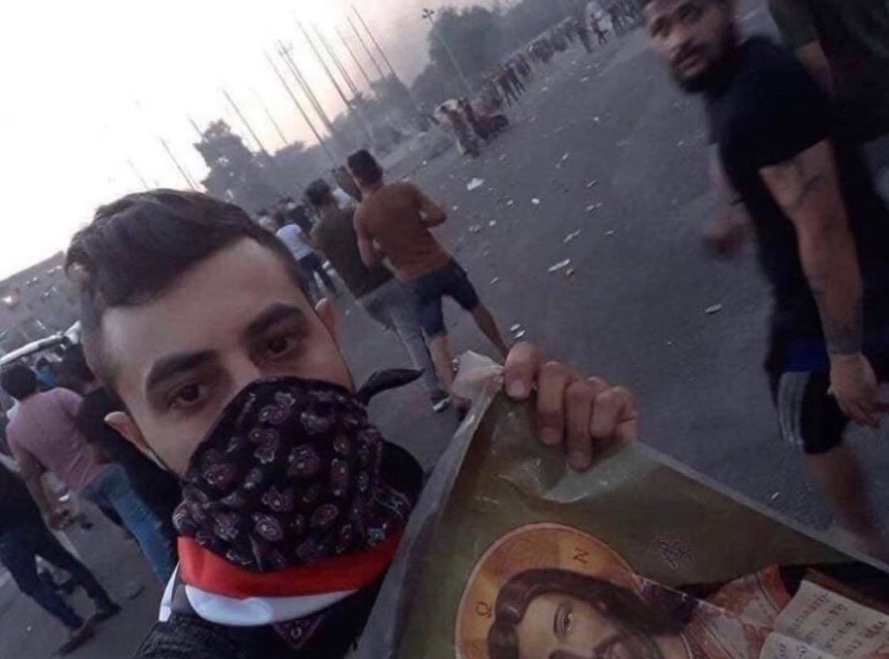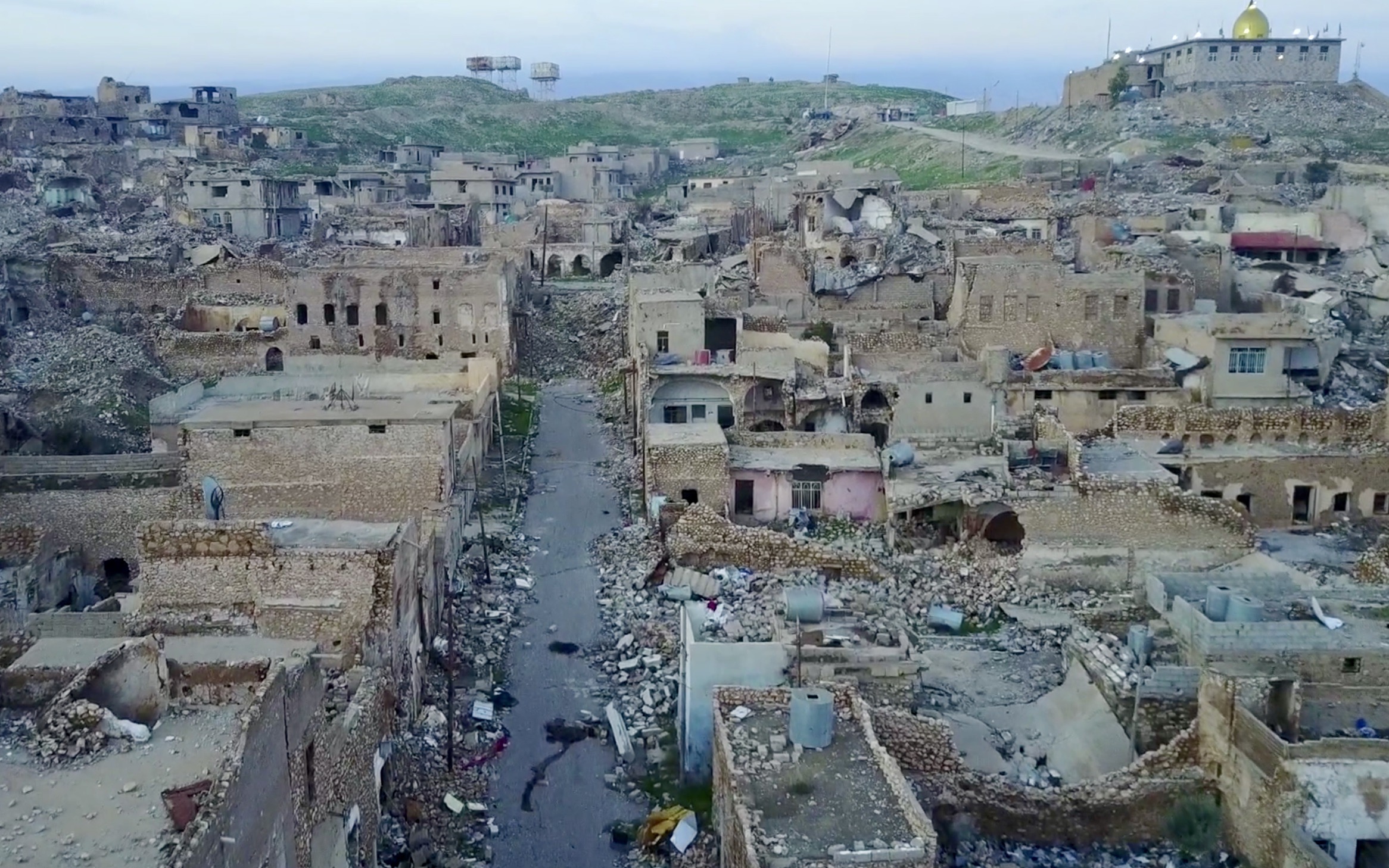
Iraq Crisis: When All You’ve Known Is War
This breaking episode explains what’s happening between Iran, Iraq, and the US, but also takes you behind the scenes of a conversation with Preemptive Love colleague, and friend, Ihsan Ibraheem. Ihsan has lived his whole life in Iraq. And he’s lived through what seems like countless wars. Ihsan is a father, a husband, a neighbor—and to many of us, an essential guide to making sense of the events of the last several days. Ihsan shares what it was like to wake up to the news of Iranian missiles hitting his country.
Share this episode
Show Notes
This breaking episode of Love Anyway is a bit different than other time-sensitive episodes we’ve shared. While we want to give you the latest, clearest information on what’s happening between Iran, Iraq, and the US, we also want to take you behind the scenes of a conversation several of us had with our Preemptive Love colleague and friend, Ihsan Ibraheem.
As we hear in this episode, Ihsan has lived his whole life in Iraq. And he’s lived through what feels like countless wars.
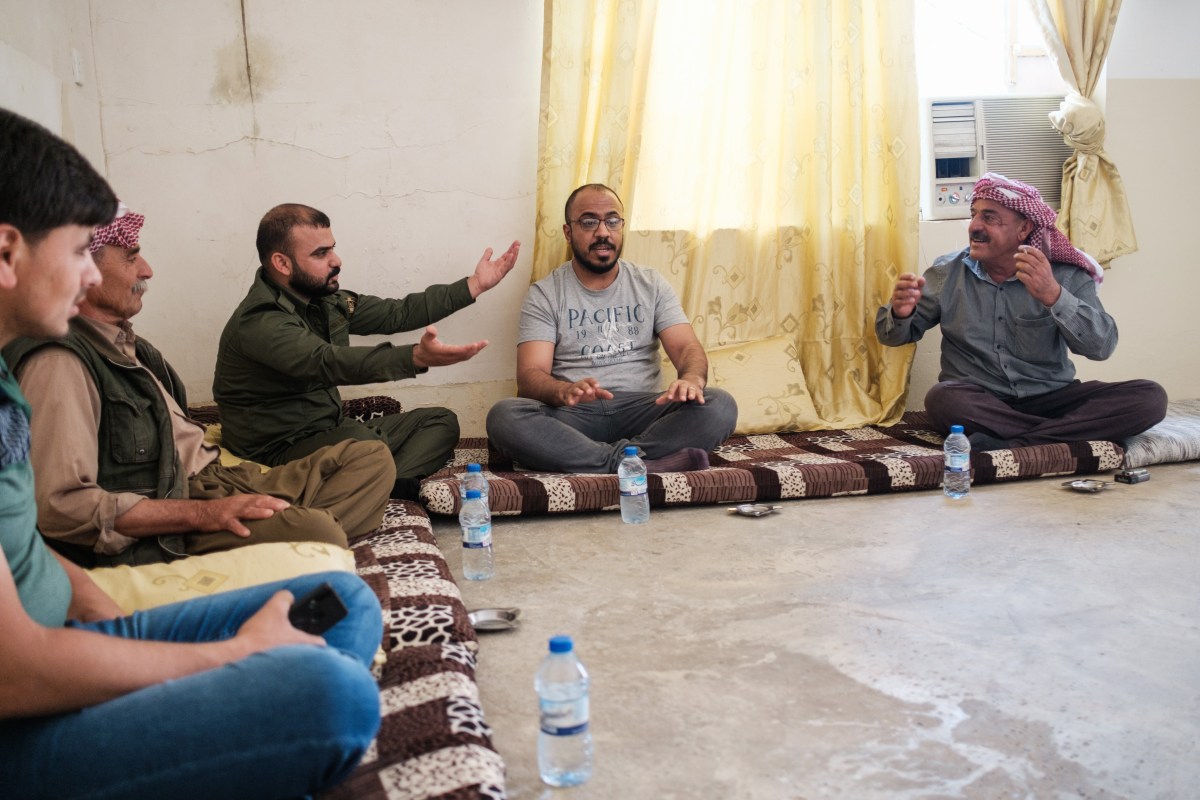
Details to know:
- Early in the morning of January 8 local time, Iran fired more than a dozen ballistic missiles at two Iraqi military bases housing US troops.
- At the time of this recording, there are no known casualties.
- The attack was in retaliation for the assassination of Iran’s top military commander Qasem Soleimani, who was killed in a US drone strike on January 3, near the Baghdad airport.
- In an address on January 8, US President Trump threatened to impose new sanctions on Iran, but also suggested the current crisis is winding down.
This episode features audio from a conversation several members of our team had with Ihsan Ibrahim, minutes before President Trump’s address. Ihsan has been part of the Preemptive Love team in Iraq for almost four years.
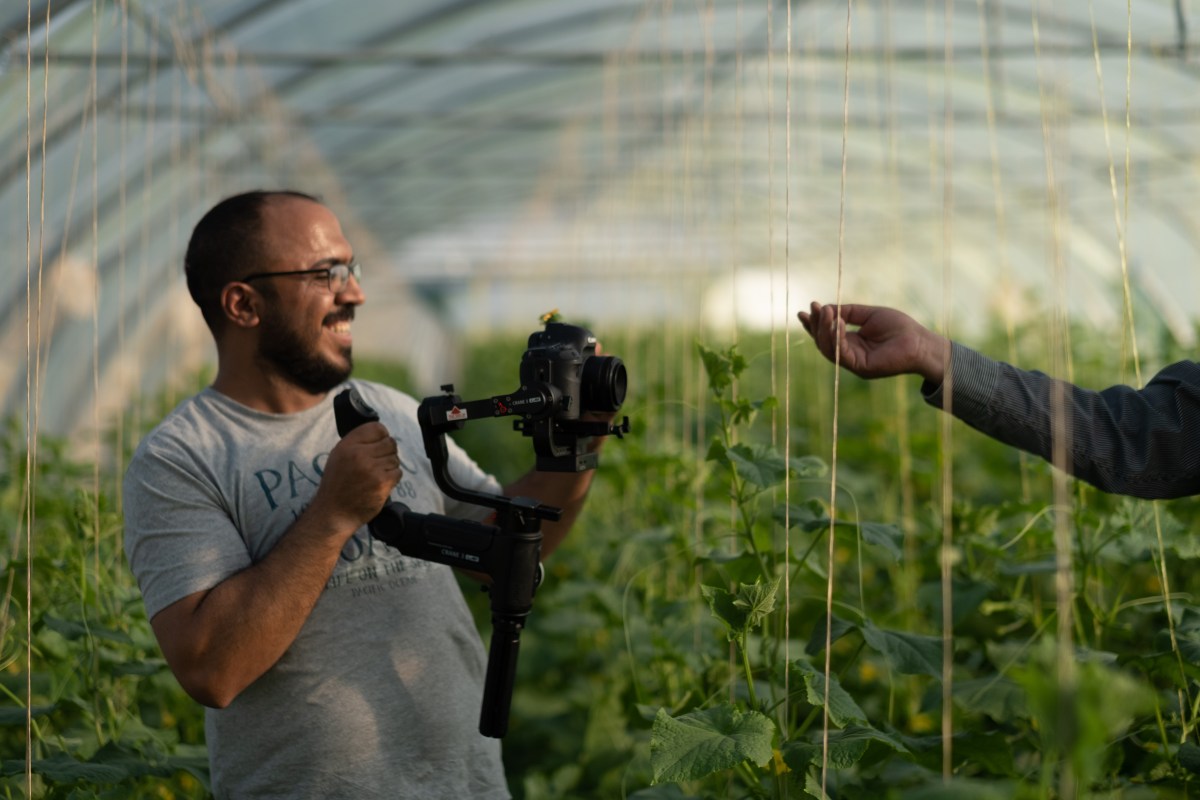
Quotes from this episode:
“We hope, we wish, we pray that this escalation between United States and Iran comes to a solution that brings peace to the region.”
— Ihsan Ibraheem
“Are we getting to the same kind of situation when I have to put my children on my shoulder to try to escape war?”
— Ihsan Ibraheem
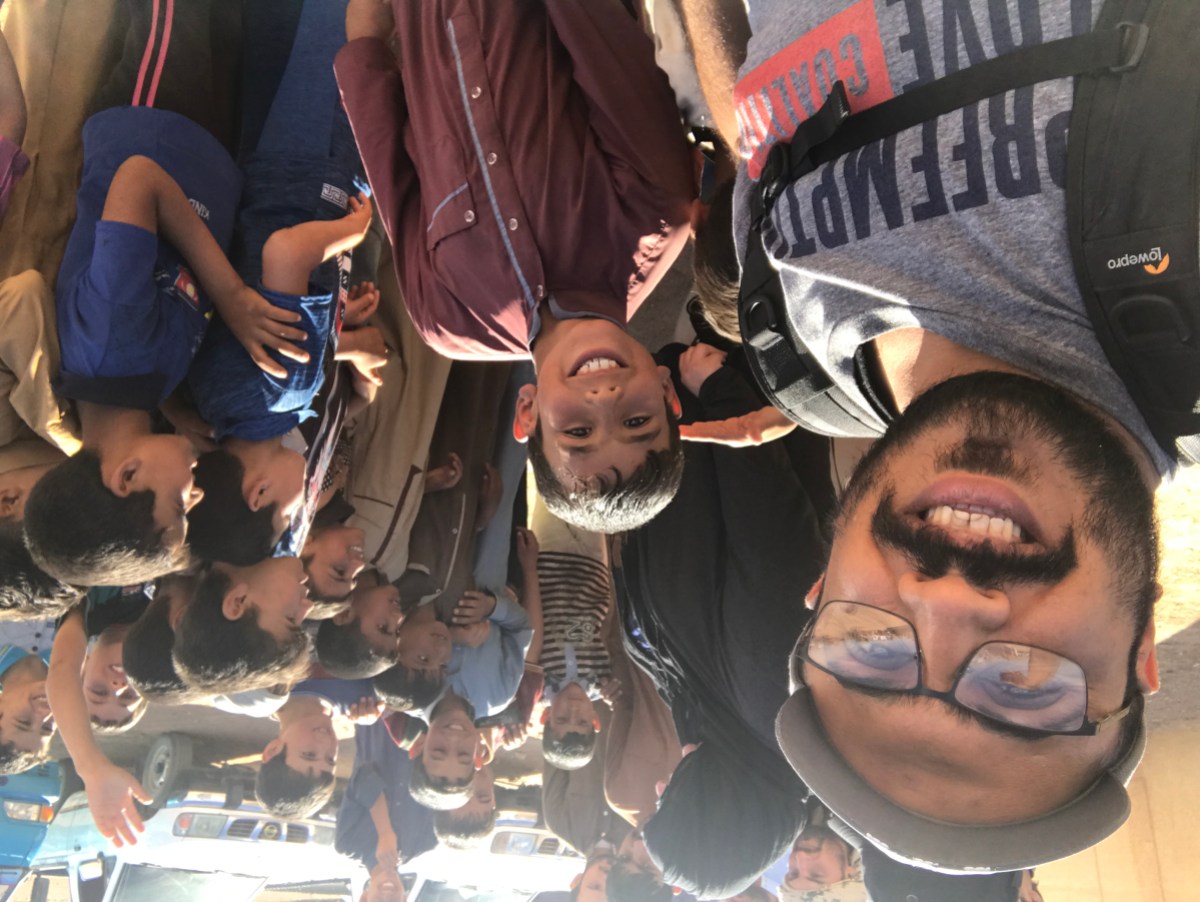
We will continue serving those affected by war in Iraq, Syria, and beyond. Join us.
Additional Resources
Full Transcript
Ihsan: I mean I think what if I had to do this also with my children? Ya know, same thing, same kind of situation, war, we try to be safe, we try to get somewhere where we try to feel secure from this violence, and having my kid is who is just two years old, what if the same thing happens that happened back in time when I was a child?
MUSIC
Ben: Today’s breaking episode of Love Anyway is a bit different than other time-sensitive episodes we’ve shared. Because today, while we want to give you the latest, clearest information on what’s happening between Iran, Iraq, and the US, we also want to take you behind the scenes of a conversation several of us had with our Preemptive Love colleague, and friend, Ihsan Ibraheem. Ihsan has lived his whole life in Iraq. And he’s lived through what seems like countless wars.
I’m Ben Irwin, communications director for Preemptive Love, and this is a breaking episode of Love Anyway.
MUSIC
Ben: Early in the morning of January 8 local time, Iran fired more than a dozen ballistic missiles at two Iraqi military bases housing US troops. At the time of this recording, there are no known casualties. The attack was in retaliation for the assassination of Iran’s top military commander Qasem Soleimani, who was killed in a US drone strike on January 3, near the Baghdad airport. In an address on January 8, US President Trump threatened to impose new sanctions on Iran, but also suggested the current crisis is winding down.
Ben: The audio you’re about to hear is from a conversation several members of our team had with Ihsan Ibrahim, minutes before President Trump’s address. Ihsan has been part of the Preemptive Love team in Iraq for almost four years. If you’ve watched any of our videos over that time, chances are you’ve seen his handiwork. But Ihsan is more than a talented filmmaker. He’s an Iraqi, a father, a husband, a neighbor, a friend—and to many of us, an essential guide to making sense of the events of the last several days. Ihsan shared what it was like to wake up to the news of Iranian missiles hitting his country.
Ihsan: The thing I see a lot of people actually are really worried, including me, about what can happen next. Now, I don’t want to go to sleep actually, I just feel like I want to stay up all the night watching the news if, if this keeps happening in that late time of the day, like one a.m. when everyone is asleep, when everyone’s not awake and then to wake up to see like there is a war going, what’s going on? Everyone is trying to do whatever they can to save themselves. Save your family. This is what we feel. Because it’s, I mean, the recent war is not so far from us. I mean, the last war against ISIS is just two years ago or even less, we still fight ISIS actually, in some places in Iraq. There was an attack recently that led to about tens of soldiers killed by ISIS ambush. So, war is not like far from us that we cannot worry or concern about.
Ben: The people of Iraq are tired of war. They are especially tired of being pawns in the proxy wars of other nations.
Ihsan: The thing is, now we are concerned about war that we are not part of it. We are not having an enemy, you know, a war between US and Iran in Iraq soil, and the people here who they will suffer who will be the heavy price of this ongoing war by proxy in Iraq. Which is very sad and very upsetting. Very frustrating to see that Iraq is, is being seen by other nations or other countries outside as a place always known for war, always known for violence. But people here reject this, people here seeing that Iraq has so much potential to be a leader in this region. But foreign violence, it didn’t let this happen. It’s keep coming and every day, we have violence here in Iraq. It will bring us two years of the stability after yourself in security. We hope we wish we pray that this escalation between United States and Iran come to a solution that bring peace to the region. And wise people come and de-escalate this and try to stop this from going through something worse, like war.
Ben: Ihsan has experienced war firsthand. In the first season of the Love Anyway podcast, you heard Ihsan share about his “longest night.” The night he was stuck in the Iraqi desert, trying to deliver emergency aid, caught between an ISIS convoy and US airstrikes. But Ihsan’s experience of war goes back farther than that.
Ihsan: We know and we see we felt how war can be and how destructive is and how horrible is when you have it in your house when you have it in your home when you have it in your country.
Ben: I wondered what Ihsan, with an experience of war most of us can only imagine, would say to the leaders of Iran and the US. So I asked him.
Ben: If you had an audience with Rouhani, with Trump, what would you say to them? if you had an invitation to say whatever you wanted to the leaders of around the leaders of the US, what would you say?
Ihsan: Well, I, I say there is no enough bullets and bombs in this world that can make peace, that can make peace.
MUSIC
Ihsan: Whatever you do now, whatever you decide now, it’s what will shape the future of this region, will shape the future of the people. So, escalating this to a next war here, the people here are the only ones who will suffer.
Ben: During the war with ISIS—still fresh in the minds of so many Iraqis—Ihsan came face to face with the devasting fallout of war.
Ihsan: Children in the desert with lost their parents just recently by bombs, by bullets, by violence, by war. Is this the future they expected? Definitely not. If this the future their parents saw for them? Absolutely not. So, you will be the one that will decide what will be the future for them.
Ben: Ihsan is in his thirties, born and raised in Iraq. He has lived through more than one war.
Ihsan: Sometimes we feel we want to throw up, this is how we feel now under all this. When the 2003 US invasion happened, I was about 14 years old. Maybe our parents when this invasion happened, maybe our parents saw that: Oh, there is hope, at least not for us, but for our children, will have a great future, will have something that we couldn’t have because of the war. You know, they have been in war for the eighties, 8 years of war, and then in 1991, and then the US invasion, but this is the thing. Maybe they felt I don’t know, I didn’t ask them. But maybe they felt the same way we feel now that oh, this is, this is a new beginning. I’ll at least for our children, our children will have the future that we hoped, we wished we have. But then it’s the war never ends. I feel that, Well maybe not for us, maybe not for my generation, but maybe for my children. Maybe they can have something peaceful, peaceful future, a prosperous future they can live in…the same future that we hope we have. But we couldn’t because of this. Because of the violence, because of the war, because of the instability.
Ben: I know how nauseating it feels from far away to see this happening again, I can’t even wrap my head around how it must feel when you live in it, when it’s your country being used as the turf for someone else’s proxy war…
MUSIC
Ben: I was a kid during the first Gulf War in ’91. And we experienced it as a form of entertainment. It was the first war that was broadcast live on TV, and you could watch CNN and see the, the tracer fire over Baghdad. They actually made like trading cards of all the figures involved in the war. And I had them all, it was sold to us as a form of entertainment. The cost of war was just kind of stripped away from it for us. And I, I think we’re still seeing the consequences of viewing war through that sanitized lens.
Wendy: I think I kind of think it’s almost like one step up from that.
Ben: That’s my colleague Wendy Russ, impact officer with Preemptive Love.
Wendy: It’s almost like we’re so attracted as Americans to the glory of getting the bad guy, you know, all the movies are, you know, underdog fights bad guy and wins and the good guy always wins and it’s good to get the bad guy and it just becomes such a romanticized idea and I think we’re kind of addicted to that.
Ihsan: I have some few flashbacks from the 1991 war, and uh this flashbacks is just stuck in my mind like it’s, it’s the only things I have. I was four years old, five years old at the time. And I remember my parents was trying to move from our house that is in the middle of the city and take us all to their parents house. Their parents asked for all their sons and their families to come and stay with them to be in under one roof not in the in the city center so they will not be affected if they’re getting bombed by US forces. So those flashbacks is basically me I was on my father’s shoulder, my brother was with my uncle. And it was raining, it was muddy. And they take us through that very narrow road to get us to be that neighborhood, which is on the, on this town corridor. I remember the smell of something burning. And that’s it. That was when I was a child, and that memories just terrifies me every time I think of it,
MUSIC
I mean, I think what if I had to do this also with my children, you know, same thing, same kind of situation, war, to try to be safe, to try to get somewhere that we feel we are secure from this violence. Having my kid, which is, he’s just two years old, what if this happened the same thing that happened to us back in time when I was a child..They have to experience and process all of this experience, the fear, the worry, I didn’t know at that time, even if they already tried, but maybe I don’t remember. But I just have that image in my mind, along with all the other images that I got of war in 2003, in the sectarian war in 2006, in the 2014 ISIS war and all of those images like together I don’t want to see that. No one actually want to see that. No one here wish to have this. They just feel tired of all these wars. Now every three, five years that we have to experience something related to war, related to tension, related to worry: Oh, what’s going on? What will happen?
Ben: A lot has been said recently about sanctions. In his address after the Iranian missile strikes, President Trump threatened to impose new sanctions on Iran. When Baghdad called on US troops to leave Iraq, the US threatened to retaliate. The United States uses sanctions more than any other country.
Governments impose sanctions on other countries to try to influence their strategic decisions or deter them from hostile behavior. Critics say sanctions are rarely successful in changing behavior, and dramatically affect innocent people who have to try to survive while their economy suffers.
For Ihsan, sanctions are more than an economic talking point. He grew up under the US-led sanctions intended to pressure former Iraqi dictator Saddam Hussein. Ihsan is understandably worried about the effect a new round of sanctions will have.
Ihsan: Now everyone is talking about those sections, everyone is worried, actually, the dinar value is just dropped. I don’t know like 2% and that’s just a single threat. How about if the sanctions actually happen?
Ihsan: The thing is, all that time of sanctions in Iraq, since 1991 until 2003, the only ones who hurt by it is the people, just normal people. People like my parents, my neighborhood, everyone who are not involved with the government. Sadam and his family, they were like in heaven, actually they were building palaces at that time. They have very loud parties every night. They did wherever can. But people they can’t. And they suffered, they sell their belongings they sell things they have in their house like a chair, like a refrigerator, to get milk for their children. Because the salary they get from the government, you can’t even buy a one kilo of meat with a kilo was 4000 dinar. And the salary for the teacher was just 3,000 dinar a month. This is very devastating. This is just will bring people to that time to that era. They thinking are we going to that? Is that what’s actually going on? Iran, United States have war, now we have to suffer all of this? Are we getting sanctions? All kinds of terrible different ideas that people are trying to avoid thinking of…while this is, this is where it’s really going.
Ben: And we can’t just think of sanctions as something that hurts people while they’re in place, the last round of sanctions that you mentioned up until 2003…they’re still having an effect on Iraq. They’re part of the reason why it’s so hard to get access to banking and credit in Iraq, sanctions that theoretically expired over a decade ago are still having consequences for ordinary Iraqi people.
MUSIC TRANSITION
Ben: Ihsan, I’m guessing what you shared about those memories when you were four…I’m guessing…those are probably some of your earliest memories as a kid.
Ihsan: These are some of the few memories I have when I was that age. This memory cannot leave me, I still have it. I cannot just think that one day I will forget it. But I’m just keep remember that all…is this gonna happen? Are we getting to the same kind of situation when I have to put my children on my shoulder to try to escape war? Which is actually the same thing that happened to the people when ISIS came. They try to run for their lives, for their family’s lives, and go outside to safety. I saw them. And when I saw them, I recalled that memory. I start to remember that again.
Ben: Ihsan, I just wanted to thank you. I know this is not easy stuff to share. This group, we’re here to hold it with you and stand with you in it.
MUSIC
Ben: This is why we have to keep telling these stories because it’s so deeply embedded in people’s minds, in people’s psyches, that this is the only way and some people believe that because it’s all we’ve been told. And we’ve literally been sold this idea of war as this necessary and even exciting thing when it is anything but, that’s why we have to keep telling these stories. Ihsan, really grateful for you. Really grateful for your perspective, for your words, for your wisdom, for the way you lead us and help us think through some really hard stuff and the way you invite us in and allow us to share with you.
MUSIC
Ben: That’s it for today. We’re continuing to monitor the situation in Iraq and Iran and provide up-to-the-minute updates online. Text “loveanywaypod” to 72000 so you don’t miss a thing. And if you want to stand with us to end war, the best way to do that is to give monthly at preemptivelove.org.
We’re Preemptive Love on Instagram, Twitter, and Facebook. Show notes with photos and bonus content are available at preemptivelove.org/podcast.
Thanks for listening. I’m Ben Irwin, and this is Love Anyway.
MUSIC

